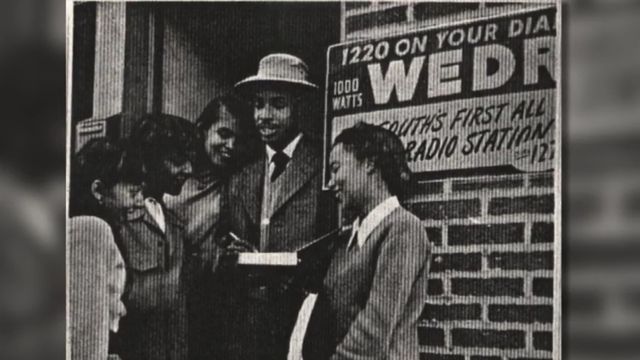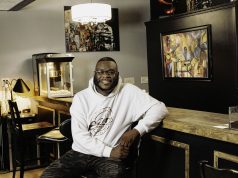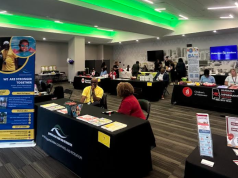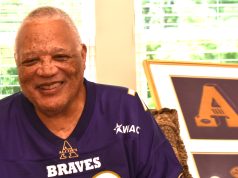By Alabama News Center Staff
At one point, Birmingham was reportedly home to six black radio stations – more than any other market in the country.
All stations had personalities who were larger than life and served a crucial role in shaping their community, even during the height of the civil rights movement.
“Back then you had AM radio; FM began around 1948.” said Bob Friedman, director of the Birmingham Black Radio Museum. “When WEDR when on the air in 1949, it was the second all-black staffed radio station in the United States. You had programming, sports casters you had women shows… I can only imagine what it was like the first time that the community here in Birmingham just listened all day long to the voices they recognized.”
Radio was a big deal in the 1960s in Birmingham, according to Gary Richardson, owner of WJLD radio.
“You had more activist type radio because it was the beginning of the civil rights movement.” Richardson said. “You had some courageous men and women who worked in radio back then and many of these folks are my heroes today.”
Roe Bonner, former owner of WENN radio said Birmingham had what most major markets didn’t have: six black radio stations.
“There was WJLD, WATV, WVUL, WENN, WAGG, here in this Birmingham market… none of those major markets had six black radio stations.” Bonner said.
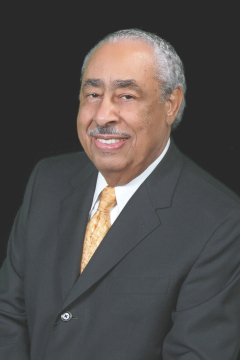
One memorable radio DJ was The Rev. Dr. Erskine R. Faush Sr. Faush was a long-time radio host and former co-owner of WATV. Faush is currently pastor emeritus of Metropolitan AME Zion Church.
“Rev. Faush came on at 8 a.m. and if we heard his theme song in the morning we knew we were late for school.” Richardson recalled.
Faush is remembered for being a “sharp dresser” and nice guy.
“Just a real nice guy, and that voice, never forget that smooth voice,” Bonner said.
He also has a lot of respect in the community, said Rose Walker, former WENN account executive.
“His legacy will leave a service to the community that is unparalleled.” Richardson said.
Another memorable radio DJ was Tall Paul. Paul Dudley “Tall Paul” White was a DJ on WENN.
“That song came on you knew ‘I got to get up, I need to get up and get ready for school,’” Walker said.
Richardson remembered Tall Paul coming to his elementary school, and being treated like a celebrity. He was even Richardson’s inspiration.
“He was the first DJ I tried to imitate as a kid,” Richardson said. “I tried to sound just like Tall Paul.”
Tall Paul was a teacher, Bonner said.
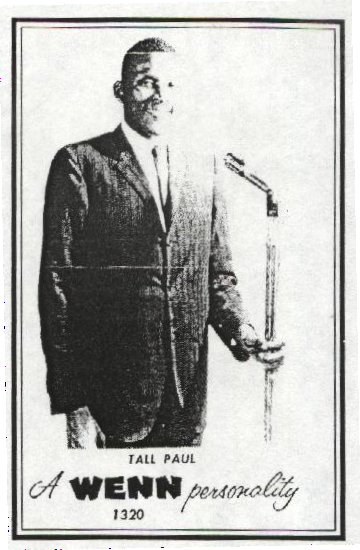
“You would think listening to him on the radio he was arrogant, but that was just a ploy,” Bonner said. “Behind the mic was really where you had a chance to see what type of person he was. He would give you your weaknesses in your show and your positive side of what you were doing.”
Tall Paul had a significant audience among white teenagers, demonstrated on one of the favorite feature of his shows — “Roll Call.” For Roll Call, he would play an up-tempo instrumental and then in his inimitable style announce the names of area high schools when students from those schools called in. In those still-segregated days it was not unusual to have Ramsay High School announced along with the “Parker High Thundering Herd” or the “Rosedale Sons of Kong.”
Richardson said Tall Paul was an instigator, but he was an activist and he was a skillful DJ.
“I learned a lot from this guy,” Richardson said.
Roy Wood received a call from Dr. A.G. Gaston to work for him to put together a news department with credibility.
“He told it like it was,” Walker said. “And it didn’t matter who it was.”
Wood did a daily editorial: One Black Man’s Opinion.
“He wanted you to think,” Bonner said.
As he got older, his son, Roy Wood, said he would ask his father why he was still working, and he recalled his father’s response.
“He was in his late 70s going on 80 years old, and still working, he said ‘It ain’t hard work and I like what I’m doing.’ And he did it until the day he died.” Wood said.
The announcers of the past were heroes, Richardson said.
“These are icons that come to mind when I think of a roll call, and these names should never be forgotten.” Bonner said.
Click here for footage about Birmingham’s black radio DJs.


